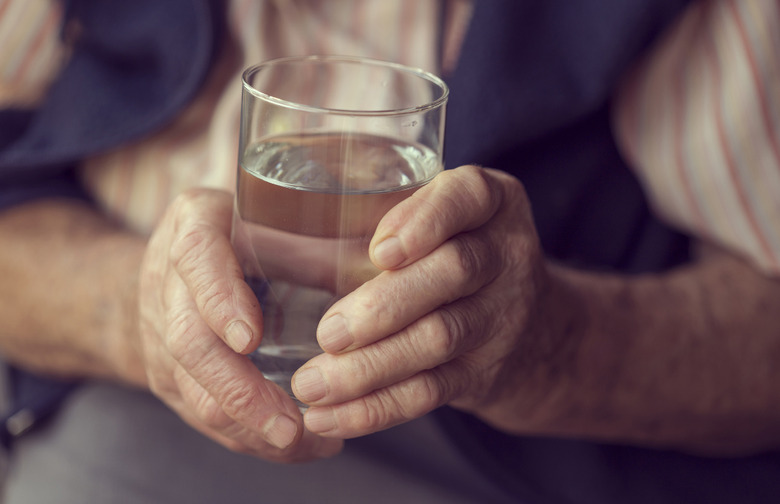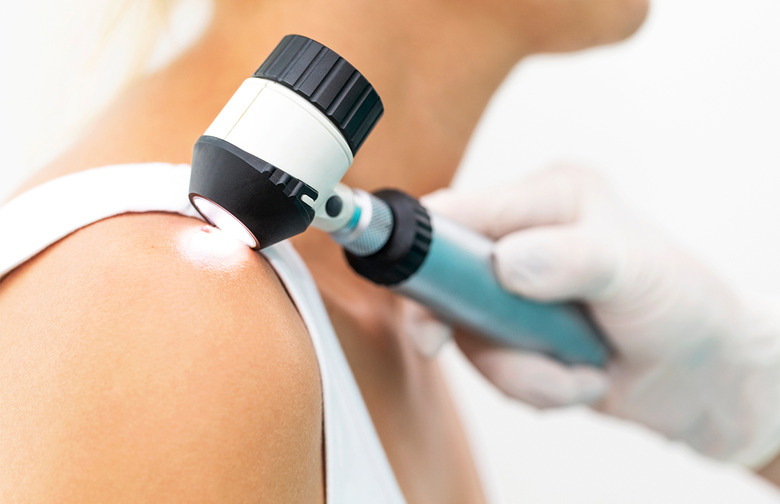17 Telltale Signs You Might Have Cancer
If you think you might have cancer, don't rely on hearsay or information you read on the internet. Get to the doctor! But if you're just trying to bolster your knowledge and plan ahead, knowing exactly what to expect before a cancer diagnosis could help you catch it early. Early detection is crucial for improving your chances at effective treatment.
Most people's knowledge surrounding cancer is a little hazy. Certain foods that everyone thinks cause cancer actually don't, while other dietary interventions have proven more effective at preventing the disease. One of the best ways to stave off cancer is to live an active, balanced lifestyle. You may also want to refrain from overdoing it on foods that have been linked to cancer.
To better inform you about the warning signs to look out for, we turned to the experts. The American Cancer Society has an in-depth list of cancer's warning signs on its website. We browsed this page and others in their database to ensure you can detect these 17 telltale signs you might have cancer as early as you can.
Blood in stool
This is a serious sign that something is wrong. Noticing blood could be a side effect of another problem, such as hemorrhoids, but it's also a warning that you could have colon or rectal cancer.
Coughing blood
Internal bleeding that's more than just a bruise is a sign worthy of enough concern to warrant a doctor's visit. A violent cough that eventually turns into coughing up blood is a warning sign of lung cancer.
Difficulty swallowing
Cancer of the esophagus is one potential cause of this symptom, but difficulty swallowing could come from one of any number of conditions. Dementia, a stroke, allergic reactions or even just a dry throat could be to blame.
Excessive bruising or bleeding
Internal and excessive bleeding are signs that something is off with your platelets and red blood cells. Leukemia could be to blame. However, a low platelet count from some other medical cause could be the culprit. Consult your doctor and ask for a blood test if you are concerned and the bruises persist.
Frequent infections
Leukemia affects your bone marrow's ability to produce white blood cells. As a result, your immune system might weaken, causing frequent infections and sickness. Bolster your immunity with the right nutrients and get to your doctor right away to find out what's going on.
Intense headaches
Migraines and headaches are quite common and can arise from a myriad of sources. Are you dehydrated? Are you getting enough sleep? Prioritize these aspects of your well-being and see if anything changes. If not, and if the headaches worsen to the point where they are unbearable, it's possible that a brain tumor is to blame.
Loss of appetite
Certain food groups may suddenly sound revolting. You may find that you never feel hungry — even when it's been far too long since you've eaten. On a small scale, these are just normal fluctuations in appetite and are no cause for alarm. But if this persists, talk to your doctor about these changes in appetite. Some women report these symptoms before being diagnosed with ovarian cancer.
Unexplained weight loss
Most people with cancer experience weight loss at some point in the duration of the disease. Regardless of dietary or fitness habits, they lose weight due to the cancer itself — this symptom is referred to as "unexplained weight loss." If a person loses a large amount of weight in a short period of time, it may be an early sign of cancer.
Low-grade fevers
A fever is common for those with cancer, and everyone who has cancer often experiences a fever at some point during their illness. Cancer treatment often impacts the immune system, resulting in a person getting sick more often and catching a fever — but in some cases, a fever can be an early sign of leukemia or lymphoma.
Noticeable change in the size of a wart or mole
The American Cancer Society advises anyone who notices a visible change in a wart or mole to consult a doctor right away. In many cases, the skin blemish is benign, but it could be cancerous. Early detection of melanoma dramatically increases your chances of effective treatment. To prevent skin cancer, make sure to always wear sunscreen (even on ocassions when you think you don't need it).
Persistent cough
A nagging cough could be indicative of lung cancer. Many patients describe these symptoms as similar to bronchitis or a really bad chest cold. The pain from all the hacking sometimes is felt from the chest all the way through the shoulder and down the arm.
Persistent nausea or vomiting
The American Cancer Society explains that nausea and vomiting are often side effects of cancer treatment; but many people might not know that they're often symptoms of the cancer before it's detected, as well. Especially if the cancer is affecting the brain, nausea and indigestion might occur.
Swollen lymph nodes
Lymph nodes are glands located in your neck, armpits and other parts of the body that function as filters for your immune system. When you are sick, they will swell; if you notice a swollen lymph node, don't panic. It's probably just your immune system doing its job. But if the swelling persists, see a doctor right away. This could be a warning sign of cancer.
Sores that don’t heal
Some skin cancers bleed and end up looking like sores that refuse to heal. If the sore is in your mouth, particularly if you smoke cigarettes or drink heavily, you should consult your doctor immediately. This could be an early sign of oral cancer.
Swelling of the face
Lung cancer patients sometimes report seeing puffiness or swelling in their faces during their illness. Certain types of lung tumors can block blood flow near the chest, preventing blood from flowing freely to the head.
Using the bathroom irregularly
Whether you're experiencing constipation, diarrhea, frequent urination or another irregularity, these symptoms could indicate bladder cancer or colon cancer. That being said, there are many other dietary and situational factors that can impact your bowel movements and bladder. Report these changes to your doctor.
Weakness or fatigue
Fatigue is characterized as extreme tiredness that does not get better with rest. As cancer progresses, fatigue often gets worse; muscles can also weaken, causing feelings of frailty and loss of energy. Some cancers, such as colon or stomach cancer, can cause blood loss, making you feel excessively tired. If you've just been feeling sleepy lately, that's not the fatigue this refers to. One of these surprising reasons you're always tired could be to blame.
More from The Daily Meal:
19 Health Myths You Should Stop Believing Right Now
Common Household Mistakes That Could Be Making You Sick
Cardiologists Share the Worst Things You Can Do for Your Heart

















